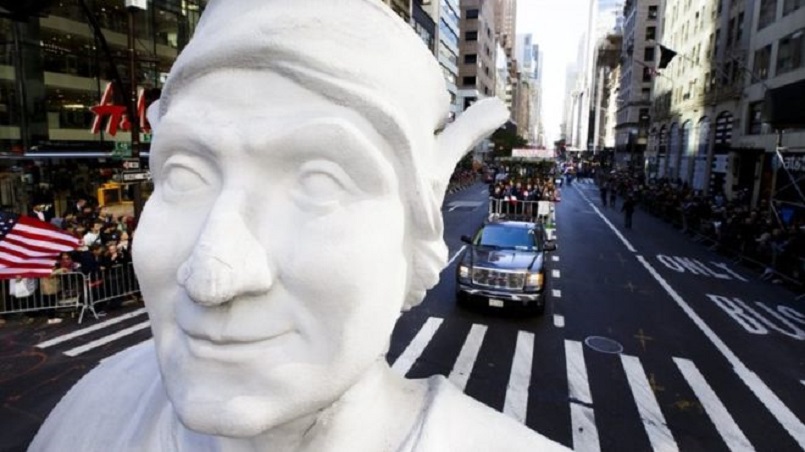
The US city of Bloomington in Indiana has renamed Good Friday and Columbus Day as "Spring Holiday" and "Fall Holiday" to be more "inclusive".
Mayor John Hamilton said the move would "better reflect cultural sensitivity in the workplace", local media said.
Bloomington is a traditionally liberal city. Its county gave Hillary Clinton 58.6% in the presidential election.
But the move sparked a backlash on social media, with opponents condemning it as an act of political correctness.
The change was announced on Friday by Mr Hamilton in a memo to city employees.
"We are terrifically proud of our diverse workforce at the city," he wrote, according to the Herald-Times.
"That diversity makes us stronger and more representative of the public we proudly serve. These updated names for two days of well-merited time off is another way we can demonstrate our commitment to inclusivity."
Bloomington city employees receive paid time off for Columbus Day and Good Friday.
Columbus Day became a federal holiday in the United States in 1937 and celebrates the arrival of explorer Christopher Columbus in the Americas in 1492.
The holiday falls on the second Monday of October.
However, it has drawn significant opposition from those who regard Columbus's arrival as a prelude to centuries of oppression.
A movement began in 1977 to replace it with a holiday that celebrates the indigenous peoples of North America. A few states now do not mark Columbus Day, or give it another title.
Good Friday is one of the most important dates of the Christian faith, marking the day Jesus Christ was crucified by the Romans.
It is not a federal holiday in the US but is a state holiday in some states.
Bloomington, with a population estimated at 84,067 in July 2016 by the Census Bureau, has long been regarded as a liberal city.
It is the home to Indiana University Bloomington and a number of other schools and institutes.
It enrolled in Tree City USA, a tree planting and tree care programme in 2015.
The renaming of the holidays drew strong social media responses, most of them condemning the move.
They included posts such as "How is the day Jesus died insensitive?" and "I'm guessing they will next rename Christmas to winter holiday".
